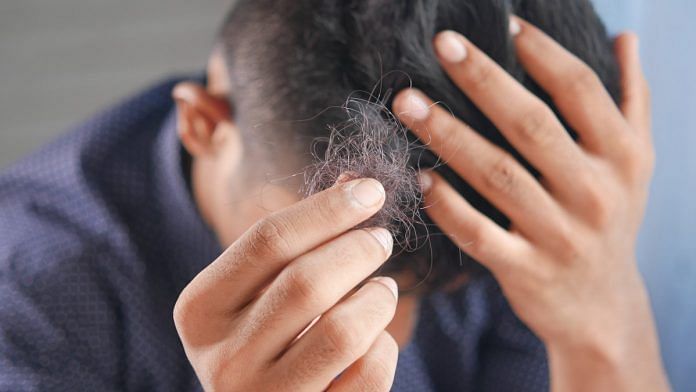As a dermatologist, I have seen many patients fall prey to advertisements that promise to give them thick, lustrous hair. Often having little awareness of the risks involved, patients get lured by the unrealistic promises made through social media posts. By opting for a hair transplant without adequate knowledge about it, you might be putting your health in jeopardy.
Cosmetic surgeries can affect patients socially and psychologically. The fact that hair transplants can be life-threatening is a global concern, but no major study by any international body has studied it in detail. Only a few case studies in India have been carried out.
In 2016, Santosh, a 22-year-old medical student in Chennai, lost his life when he underwent a hair transplant at a private centre that had actually had a salon license. In 2019, a 43-year-old businessman from Mumbai who received 9,000 grafts in a single sitting died within two days due to complications. In September 2021, a 31-year-old man in Gujarat died from anaphylactic shock, an allergic reaction to hair transplant. In 2022, Athar Rasheed, a Delhi-based Indian television executive, died after he underwent a botched surgery.
Such cases are a clear call for the need for stringent governmental measures against misinformation, deceptive advertisements, and fraudulent surgical procedures and practitioners who are running the show and ruining lives.
If you are planning to opt for a hair transplant surgery, here are some basics you should know.
I learned about various hair transplantation techniques under the guidance of Prof Yahya Dowlati in Tehran and was taught that surgical procedures are carried out in sterilised and quality-assured environments. I follow those protocols in my clinic too. The room is isolated for 24 hours before the surgery to ensure optimum sanitisation. Quality assurance is a prerequisite to maintaining the safety and wellness of patients.
Also read: AI tech has transformed how people see themselves—No one can accept their natural self
Know your doctor
Get your surgery done at clinics that follow standard protocols and have infrastructure approved by a licensing authority. In 2022, the National Medical Commission’s Ethics and Medical Registration Board came up with Guidelines on Aesthetic Surgery and Hair Transplant Procedure that delineate the protocols that practitioners must follow. Only Registered Medical Persons (RMPs) must carry out the procedure with adequate pre- or post-surgery care and medications along with trained support staff. Poor training and lack of hygiene and expertise can lead to unsatisfactory or disastrous results.
Although the surgery is usually short and performed with local anesthesia, it may run for a few hours depending on the number of hairs to be transplanted. Do not get carried away by advertisements about cheap hair transplants — in such cases, it’s often a quack working on your scalp with compromised quality protocols. Moreover, patients must thoroughly consult their doctor before opting for the surgery and follow their advice.
Pre- and post-surgery treatment are as important as the procedure. For the desired results, you must use the shampoo, soaps, and medicines prescribed by your doctor.
What you can do
Rampant oversight and the lack of strict regulation in this field put patients at serious risk. Improper care can lead to excessive blood loss, shock, sepsis, infection, and other complications that can result in death or surgical defects such as improper insertion of the hair.
Attendants must be vigilant and check the disposable syringes and instruments to be used before surgery. If the bandages are soaked in fresh blood even 12-24 hours after the surgery, contact your doctor. In case some swelling appears on your forehead after surgery—diabetics and pre-diabetics patients are more prone to it—you can take oral medicines to reduce it. Urticaria or other allergies that develop within two days of surgery should not be ignored. If any neurological complication suddenly develops after surgery, consider it an emergency.
The Indian government should introduce more programmes and fellowships for dermatological doctors and plastic surgeons. They must study authorised courses to gain expertise and provide patients with their licence proof at clinics. Government hospitals should also accommodate such facilities at minimal costs. Strict action should be taken against fraudulent practitioners and misleading advertisements.
Hair transplantation can enhance your appearance — only if it is done right.
Dr Deepali Bhardwaj is a dermatologist, anti-allergy specialist, laser surgeon and internationally trained aesthetician. She tweets @dermatdoc. Views are personal.
(Edited by Humra Laeeq)



